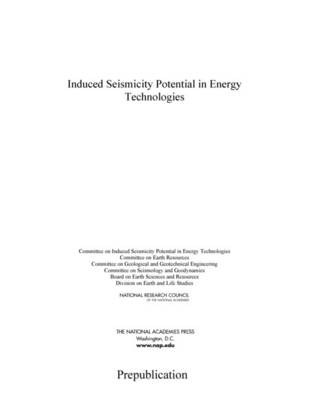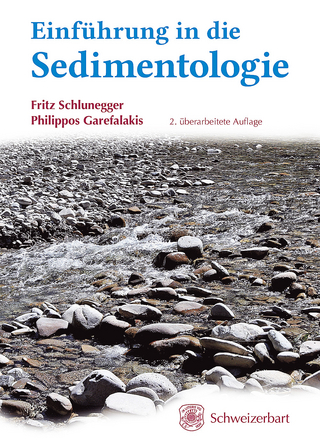
Induced Seismicity Potential in Energy Technologies
National Academies Press (Verlag)
978-0-309-25367-3 (ISBN)
Induced Seismicity Potential in Energy Technologies identifies gaps in knowledge and research needed to advance the understanding of induced seismicity; identify gaps in induced seismic hazard assessment methodologies and the research to close those gaps; and assess options for steps toward best practices with regard to energy development and induced seismicity potential.
1 Front Matter; 2 Executive Summary; 3 Summary; 4 1 Induced Seismicity and Energy Technologies; 5 2 Types and Causes of Induced Seismicity; 6 3 Energy Technologies: How They Work and Their Induced Seismicity Potential; 7 4 Governmental Roles and Responsibilities Related to Underground Injection and Induced Seismicity; 8 5 Paths Forward to Understanding and Managing Induced Seismicity in Energy Technology Development; 9 6 Steps Toward a "Best Practices" Protocol; 10 7 Addressing Induced Seismicity: Findings, Conclusions, Research, and Proposed Actions; 11 Appendixes; 12 Appendix A: Committee and Staff Biographies; 13 Appendix B: Meeting Agendas; 14 Appendix C: Observations of Induced Seismicity; 15 Appendix D: Letters between Senator Bingaman and Secretary Chu; 16 Appendix E: Earthquake Size Estimates and Negative Earthquake Magnitudes; 17 Appendix F: The Failure of the Baldwin Hills Reservoir Dam; 18 Appendix G: Seismic Event Due to Fluid Injection or Withdrawal; 19 Appendix H: Pore Pressure Induced by Fluid Injection; 20 Appendix I: Hydraulic Fracture Microseismic Monitoring; 21 Appendix J: Hydraulic Fracturing in Eola Field, Garvin County, Oklahoma, and Potential Link to Induced Seismicity; 22 Appendix K: Paradox Valley Unit Saltwater Injection Project; 23 Appendix L: Estimated Injected Fluid Volumes; 24 Appendix M: Additional Acknowledgments
| Verlagsort | Washington |
|---|---|
| Sprache | englisch |
| Maße | 178 x 254 mm |
| Themenwelt | Naturwissenschaften ► Geowissenschaften ► Geologie |
| Technik ► Bergbau | |
| ISBN-10 | 0-309-25367-5 / 0309253675 |
| ISBN-13 | 978-0-309-25367-3 / 9780309253673 |
| Zustand | Neuware |
| Haben Sie eine Frage zum Produkt? |
aus dem Bereich


